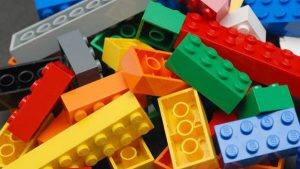![]() Great news, Dr Bernie has completed her formal training as Lego group facilitator. We thought that it would be insightful if we made some information available for the public to understand how wonderful this new play therapy technique is.
Great news, Dr Bernie has completed her formal training as Lego group facilitator. We thought that it would be insightful if we made some information available for the public to understand how wonderful this new play therapy technique is.
It is interestingly both Lego groups have been popping up all over the world in fact; Lego therapy is now considered a successful type of play therapy. Several educational and medical studies in the UK and the USA found that suitability facilitated group with Lego blocks can help, develop and reinforce play, and social skills such as:
- Verbal and non-verbal communication
- Joint attention
- Task focus
- Sharing and turn-taking
- Collaborative problem-solving
How Lego Therapy Works
Building with Lego blocks is a multi-sensory, open-ended experience, so the projects can be tailored to unique needs, such as blindness, deafness, mobility impairment, autism or ADHD. But the format for most Lego therapy programs is the same.
- Set the ground rules
Participants suggest and agree upon simple rules that everyone understands. The rules are posted as a reminder.
- Assigned roles
Participants are assigned roles, and may be rotated:
- Engineer
- Builder
- Supplier
- Director
- When applying the principles of play therapy:
This therapy has a greater long-term benefit:
- Creating a dedicated time and space for the activity
- Using non-verbal communication as much as possible
- Using declarative language instead of commands or questions
- Joining and challenging at each step of the activity
- Encouraging collaboration and pretending
- Role of adult facilitators
Emotions can run high during a Lego project. A trained adult facilitator can support positive interactions, suggest compromises, provide prompts as necessary and keep the group on task.
Research Evidence
Ground breaking research in this field has been pioneered by innovative and creative researchers who have shown that significant gains can be made in social development through LEGO play. In LEGO therapies, building materials are used as therapy for increasing motivation to participate in social skills intervention, and providing a medium through which children with social and communication disadvantages can effectively interact. Studies of long-term outcomes for ASD children participating in LEGO therapies have showed that those children participating in the therapy improved significantly more than the comparison children.
Studies have assessed the benefits of LEGO play in three measures of social competence – self-initiated social contact, duration of social interaction and reductions in “stereotyped” behaviours.
More information is available at http://asdaid.org/lego-and-asd/lego-therapy
This therapy is now available @ Alpha House please use the contact us page, and we will reply to your request or give you additional information.





